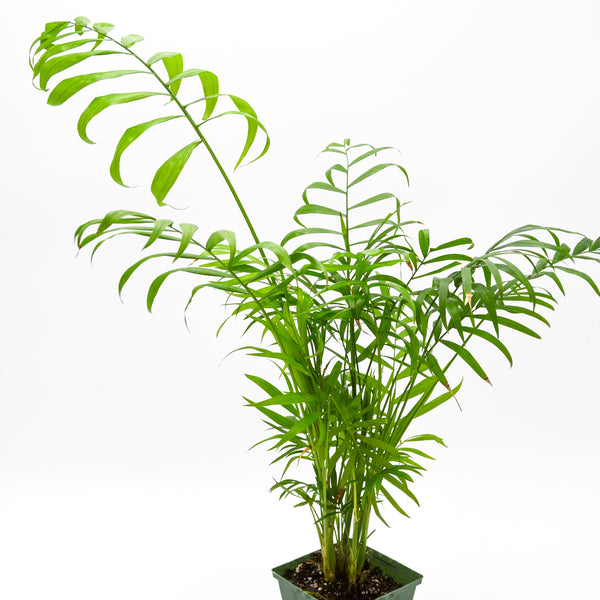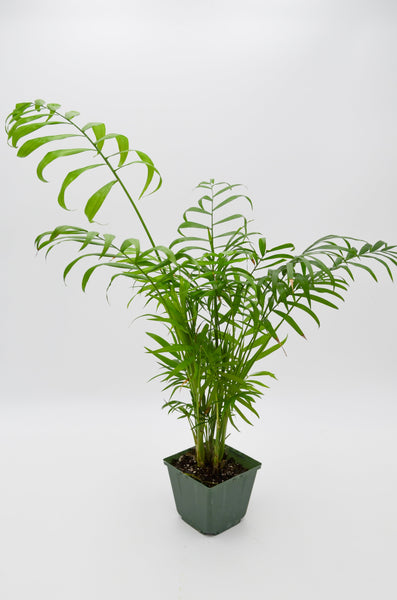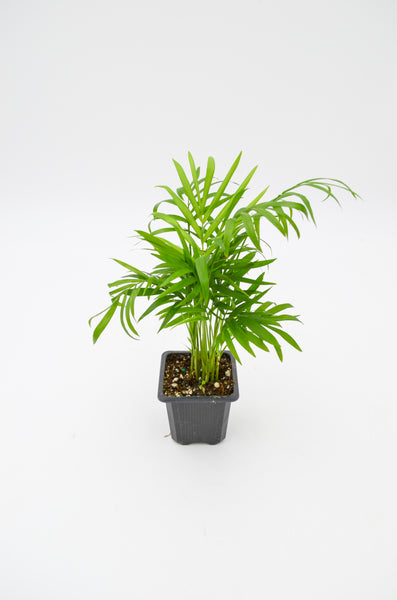Parlour Palm (Chamaedorea elegans)
Parlour Palm (Chamaedorea elegans), also known as Neanthe Bella Palm or Parlor Palm, is a popular houseplant native to Central America. It's prized for its attractive, arching fronds, slow growth rate, and ability to thrive in low light conditions, making it an ideal indoor palm for homes and offices.
Parlour Palm Care Instructions:
-
Light: Place your Parlour Palm in a location with bright, indirect light. It can tolerate low light conditions, but its growth may be slower. Avoid direct sunlight, as it can scorch the leaves.
-
Water: Keep the soil evenly moist but not soggy. Water your Parlour Palm when the top 1-2 inches of soil feels dry to the touch. Be cautious not to overwater, as this can lead to root rot.
-
Humidity: Parlour Palms prefer higher humidity levels. To increase humidity, place a tray filled with water and pebbles underneath the pot, mist the leaves occasionally, or use a humidifier.
-
Temperature: Maintain a temperature range of 65-80°F (18-27°C) for optimal growth. Parlour Palms can tolerate a range of temperatures but avoid exposing them to temperatures below 50°F (10°C) or sudden temperature changes.
-
Fertilizer: Feed your Parlour Palm with a balanced liquid fertilizer every 4-6 weeks during the growing season (spring and summer). Use a half-strength solution to avoid over-fertilizing. Reduce feeding to once every 2-3 months during fall and winter.
-
Pruning: Prune your Parlour Palm as needed to maintain its shape and size. Remove any yellow or brown fronds and trim the tips if they become damaged.
-
Repotting: Repot your Parlour Palm every 2-3 years or when the roots outgrow the pot. Choose a well-draining potting mix and a pot that is 1-2 inches larger in diameter than the current one. Be gentle when handling the roots, and water the plant thoroughly after repotting.
Pet-friendly or toxic to pets?
According to the ASPCA, Parlour Palm (Chamaedorea elegans) is non-toxic to cats and dogs. This plant is considered pet-friendly, making it a suitable choice for households with pets that may be prone to chewing on plants. However, it's always best to discourage your pets from chewing on plants, as even non-toxic plants can cause mild digestive upset if ingested in large quantities. If you have concerns about your pet's health, contact your veterinarian.






